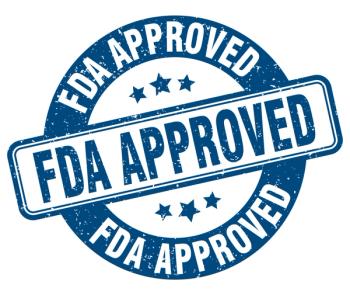
Clinical Q & A: What are the right OTCs to treat cough associated with the common cold?
It is that time of the year when consumers flock to their local drugstores seeking the "long-trusted" remedies for the common cold and its associated symptoms-particularly cough. In response, pharmacists will be called upon to make therapy recommendations that suit the needs of each individual patient.
Scanning the pharmacy shelves, one can be overwhelmed by the variety of treatment options. The obvious question is, Are all of these options effective, and, if not, which should be recommended and which should be avoided in adult patients?
When self-treatment of acute cough due to the common cold is acceptable, pharmacists have traditionally recommended drugs such as dextromethorphan as an antitussive and guaifenesin as an expectorant for the management of cough, as well as zinc-containing products for the management of the common cold and its associated symptoms, including cough. The ACCP guidelines provide insight into the effectiveness of these preparations in adult patients.
Using a review of literature published in the English language on human subjects from 1960 to 2004, the authors evaluated agents that have been utilized for the management of cough due to upper respiratory tract infections (URTI). Dextromethorphan was found to have limited efficacy for symptomatic relief of cough, and the authors therefore concluded that it is not recommended for such use until further evidence becomes available to support its efficacy. The guidelines review studies by Lee et al. and Tukainen et al., which showed no difference in cough frequency and severity when patients were treated with dextromethorphan. On the other hand, the authors note that meta-analyses by Pavesi et al. and Parvez et al. showed some efficacy of dextromethorphan in reducing cough frequency. This inconsistency could be due to the limited efficacy of dextromethorphan (<20% cough suppression), which would require large numbers of study participants to determine its efficacy.
The ACCP review of trials on guaifenesin also yielded mixed results where, in one study by Robinson et al., the substance was found to improve cough severity and frequency, yet the study by Kuhn et al. showed no significant effect. The authors of the guidelines do not make any specific recommendations concerning the use of guaifenesin in patients with acute cough secondary to URTI.
The guidelines also address the use of zinc-containing products for the management of the common cold. Such preparations were found to provide mixed results in the management of URTI; and, as a result, the authors suggest that the use of zinc-containing products for treating acute cough due to the common cold is not justified and should not be recommended.
In contrast, the guidelines identify several products that may be effective. According to the guidelines, the combination of the first-generation antihistamine brompheniramine and a sustained-release formulation of the decongestant pseudoephedrine has proven effective in reducing acute cough as well as postnasal drip (PND) and throat-clearing associated with URTI. This recommendation is based on a study by Curley et al., who demonstrated that the use of this combination led to a more rapid improvement in those three symptoms.
Newsletter
Pharmacy practice is always changing. Stay ahead of the curve with the Drug Topics newsletter and get the latest drug information, industry trends, and patient care tips.























